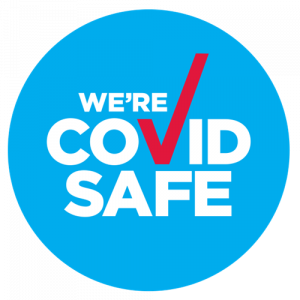Stuttering is a speech fluency disorder where the flow of speech is interrupted. It can impact both adults and children and can be treated at all ages. Treatment for stuttering requires specialist input from a speech pathologist who is trained in a variety of stuttering therapies. The specific therapy used will depend on the individual, their family, and the stutter type.
The Lidcombe Program is commonly used for younger stutters. In this therapy a parent or caregiver is trained to give specific feedback for smooth and stuttered speech. This therapy does not change the speaking pattern of the child. Syllable Timed Speech and Smooth Speech are also common therapies and are more frequently utilized for adolescents and adults. These programs change the person’s speaking pattern to assist them to manage their stutter. Other options include individualised strategies to manage stuttered moments, assistance and alternative technology (AAC), and a combination of approaches.
How to recognise a stutter in a toddler or small child
Stuttering behaviours interrupt the flow of speech even though the person knows exactly what they want to say. There are different types of stutter behaviours such as:
- Repetition: when someone repeats a sound or syllable of a word e.g. “w-w-we went to the park”, “we-we-we went to the park”
- Prolongations: when a sound is lengthened e.g. “sssssssee the ducks”
- Blocks: when no sound comes up e.g. “the (pause) ball is over there”
- These may be accompanied by excessive blinking, the mouth and face looking stuck in a position, twitching of facial features or lots of fillers such as ‘um’ and ‘ah’.
A mild stutter may occur between ages 2 and 3 as the child has a large increase in their language. At times this goes away without therapy, however in some children it gets worse or does not go away. Stutters most commonly occur without a known cause, however they can be acquired due to a brain injury. They may vary in their severity on a daily basis and tend to worsen when the person is tired or upset.
What do I do if my child has a stutter?
If your child develops a stutter that persists from more than 3 months, please contact a speech pathologist. They will provide you with information and strategies specific to the individual. It is best not to comment on the stutter until you have gained individualised advice from a speech pathologist. Commenting can bring unwanted attention on the child causing them to withdraw and reduce their communication. It can also negatively affect therapy. This includes avoiding telling the child to slow down or think about what they want to say.
If your child is frustrated by their stutter you can say “It’s okay. I’m still listening. Keep going”. Getting down to your child’s eye level is a great way to show them that you are interested in their communication message. Always allow your child the time to say their message and avoid finishing off words or sentences for them. You can also reduce background noise, such as turning off televisions, to help them be understood.
How does Harrison Speech Pathology treat children with a stuttering issue?
All therapists at Harrison Speech Pathology are trained and experienced in stuttering. The therapist will first see the parent and child for an initial appointment. During this time the therapist will get an in-depth case history and observe the child during play to determine the stutter type and most appropriate treatment approach. Therapy will then be tailored to the child and family’s lifestyle. The therapist will work directly with the family to train them in the selected therapy approach.
Stuttering therapy is tailored to the individual and most commonly completed within play to ensure the child is engaged and enjoys practicing. Home practice is common, and the therapist will guide the family in activities which are suited to their individual routines and easily implemented at home.





